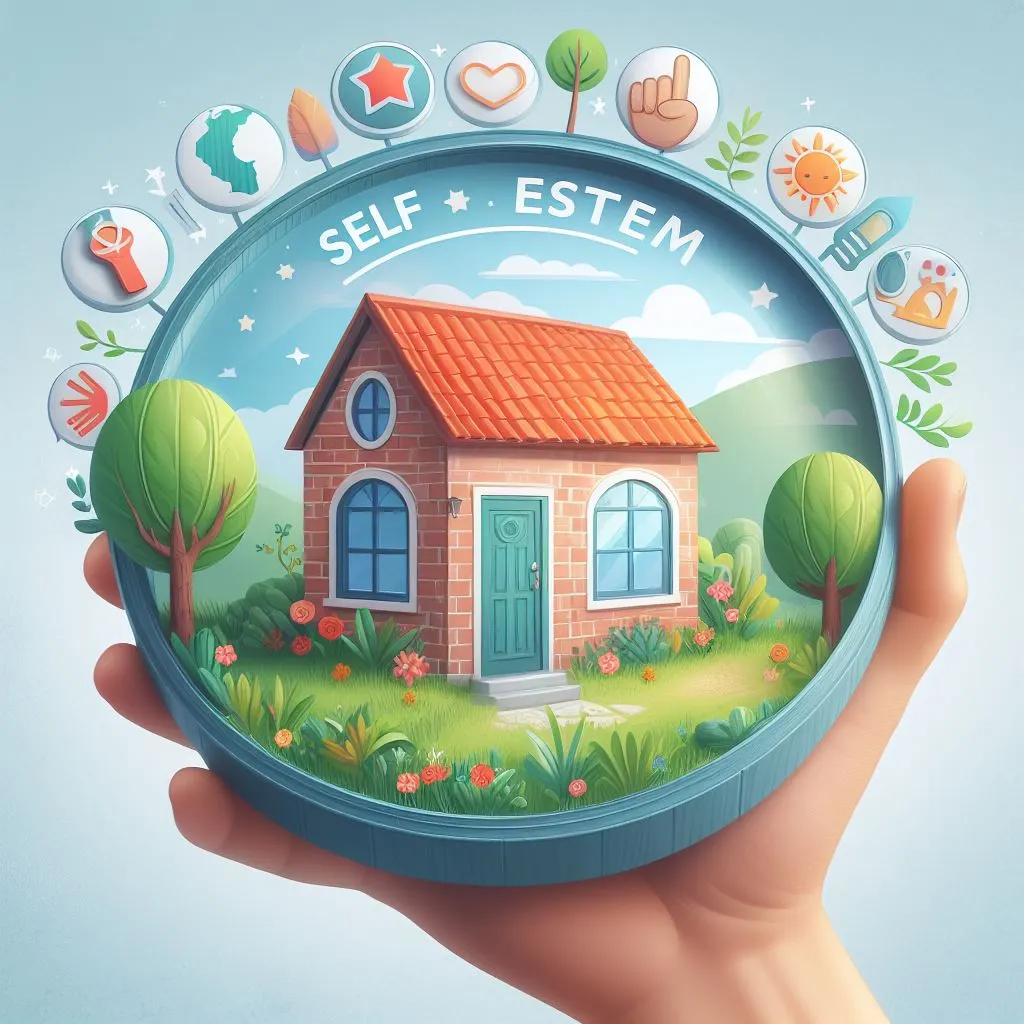Have you ever noticed that being around certain people or in certain environments just makes you feel better about yourself? Well, One thing that always stands out is the profound impact our environment can have, both positive and negative.
From my research and observations, it is clear that being surrounded by supportive relationships, stability, role models and opportunities to develop skills is so important for cultivating a healthy sense of self. So in this article, I’m going to explore how a positive environment can contribute to having healthy self-esteem.
Supportive Relationships Lay the Foundation
One of the most important factors is having supportive relationships. When the important people in our lives, like our parents, caregivers or friends, make us feel loved, accepted and capable, it gives us confidence (Branden, 1994). In contrast, unstable or abusive relationships can undermine self-worth by conveying a sense of unworthiness.
So, If you have positive relationships, your self-esteem receives a boost. If you have bad relationships, you face the problem of low self-esteem.
Positive Home Environment

What positively affects self-esteem? Our home setting, our home environment also impact on healthy self-esteem. A predictable, consistent home base provides children with security to focus outward on learning rather than inward on survival needs.
They start to see themselves as valued and in control. Whereas instability and neglect convey a lack of control and value.
Learning from Positive Role Models
Positive role models also boost self-esteem. Seeing people we respect handling challenges and achieving goals with skill, hard work and perseverance gives us faith in our own abilities (Bandura, 1977). Role models demonstrate that capabilities are not fixed and that we have power over our potential through effort.
Their successes suggest that if they can do it, maybe we can too with persistence. Whereas negative role models who be little themselves or blame external factors for problems damage self-image by suggesting low expectations.
Cultural Influences on Healthy Self-Esteem
You know, it always fascinates me how much our surrounding environment and social norms can impact how we feel about ourselves.
One pattern that stands out is how individualistic versus collectivist cultures approach the self. In societies that emphasize independence, choice and personal achievement, self-esteem generally tends to be higher. People have more room to pursue their unique talents and interests, which breeds confidence.
Culture plays a significant role in shaping individuals’ perceptions of self-worth and esteem, influencing how they value themselves and others.
But in more collectivist cultures focused on group harmony over individual needs, self-esteem sometimes lags behind. When your main purpose is fitting into the whole rather than exploring your separate self, it can undermine worthiness. Not to say one is better—just different impacts on self-image.
Even within individualistic cultures, I’ve noticed urban versus rural influences. City living that’s fast-paced and anonymous promotes a strong independent self. But the village lifestyle of interdependence and belonging has benefits too for some personalities. Both shape self-concept in their own way.
Positive Work Environment and Self-Esteem

Where you’ve got supportive leadership that enables growth and recognizes people’s strengths, you’ll find a confident, motivated team doing their best work. But toxic management that belittles or micromanapes has a way of getting into people’s heads over time.
Even little things, like fostering cooperation versus competition so folks uplift each other, go a long way. Hostile interactions or cliques breed insecurity no one needs.
The ability to fully use your skills on meaningful projects and not just repetitive tasks is also key. Feeling valued and like you’re making progress keeps self-esteem intact.
Work-life balance prevents burnout, which erodes anyone’s self-regard if left unchecked. Flexibility shows trust that employees can manage responsibilities without constant supervision.
At the end of the day, empowering people and creating a supportive culture lays the groundwork for employees feeling good about their work and career path. It’s about cultivating an environment where everyone can thrive.
How To Create Positive Environments
Creating positive environments is so important for nurturing healthy self-esteem. Here are some tips based on research and experience:
Focus on Meaningful Relationships
Relationships are truly at the core of a child’s development. By making genuine connections and being fully present through quality listening and encouragement, young people learn they have a safe place to belong. Small daily acts of kindness go such a long way in nurturing self-esteem.
Provide Stability and Consistency
Having stability in their lives, whether through family routines or relationships they can rely on from day to day, gives children a tremendous sense of safety and control. It alleviates stress so they can focus on learning and growing. Consistency in one’s environment does so much to cultivate confidence from an early age.
Recognize Your Strengths
We all have our own talents and things we excel at, even if they aren’t always obvious. Making an effort to notice and praise children’s unique skills, work ethic or interests shows them what they’re capable of and gives them motivation to keep strengthening those areas. This lays the groundwork for positivity about their abilities.
Lead the Way with Determination
Seeing influential role models in one’s life persist through challenges with grace and determination is incredibly inspiring. It conveys the potential we all have to achieve goals if we put in steady effort over time. Leading by example with a growth mindset nurtures resilience from a young age.
Fuel the Fire of Curiosity
Having freedom and encouragement to discover one’s natural interests and curiosities through trying new activities fosters lifelong learning and development. It empowers independence and creativity. Offering choices and access to experiences within safe parameters develop self-esteem.
Create a Safe Space
Exposure to abuse, bullying or unstable environments that convey a lack of safety understandably damage a child’s self-worth over time. Creating nurturing spaces free of such threats allows them to simply be kids and focus on learning through play.
Empower Through Autonomy
Believing one has some control over their world does wonders for confidence. Giving age-appropriate choices, respecting opinions and sharing responsibilities teaches independence. It cultivates self-assurance through taking initiative and experiencing small successes.
Focus on Growth Over Perfection
Mistakes are inevitable and part of the learning process. Taking a gentle, supportive approach where improvement matters more than being “perfect” from the start builds resilience. It conveys that effort and trying new things is how we expand our abilities.
Find the Fun
Laughter, playfulness and making happy memories through fun traditions and rituals provides natural stress relief. It strengthens relationships and fosters joy, both important for overall emotional well-being and confidence.
Take Care of Your Inner Well-Being
How we feel about ourselves physically and mentally impacts how we view our self-worth. Prioritizing psychological and emotional health through open communication and support shows kids they are cared for as whole people.
How Can You Develop A Healthy Positive Self-esteem?
I’ve really come to understand the importance of developing self-esteem from a young age. Here are five key steps I’ve seen make a big difference:
- Build genuine connections through quality time. Sit down for meals together each day without distractions. Kids feel heard when you look them in the eye and ask open-ended questions to learn what’s really going on in their lives.
- Provide consistency in routines and commitments. Young minds thrive on stability. Keep the same bedtime each night, and follow through when you say you’ll do something together on the weekend. It alleviates stress so they can just be kids.
- Recognize strengths through specific praise. Notice when they’re kind to others, then share what you saw with others. Praise the effort they put into homework, not just the finished result. It boosts their belief that they have skills to offer.
- Lead by example with perseverance and grit. When they struggle, show determination to solve problems through patience and hard work. Say positive self-talk out loud like “I can do this.” It nurtures resilience that lasts a lifetime.
- Fuel curiosity through exploration. Follow their lead with activities instead of forcing your ideas. Hands-on learning through hobbies and projects cultivates confidence as they gain new skills and independence through discovery.
With consistency over time, these steps lay the groundwork for healthy self-esteem. But you can’t forget to enjoy the little moments along the way too!
References
- The Self-Esteem Workbook” by Glenn R. Schiraldi. This practical guide provides concrete exercises parents and kids can do together to identify strengths and reframe negative thinking. It’s full of real-world examples I’ve seen make a difference.
- “The Self-Esteem Trap” by Phyllis Schlafly. An older book but still relevant in outlining how praise needs to be specific and focused on effort, not just talent, to boost confidence healthily from a young age.
- “Mindset” by Carol Dweck. Exploring the growth mindset approach has been so impactful for the families I work with. It emphasizes the power we all have to develop skills through persistence and hard work.
- “Permission to Feel” by Marc Brackett. This one opened my eyes to how emotions are key to well-being and success. Helping kids understand and process feelings cultivates self-awareness.
- “The Courage to Be Disliked” by Ichiro Kishimi and Fumitake Koga. The Japanese philosophy of “tough love” parenting in here really resonated as a way to build independence and resilience.


